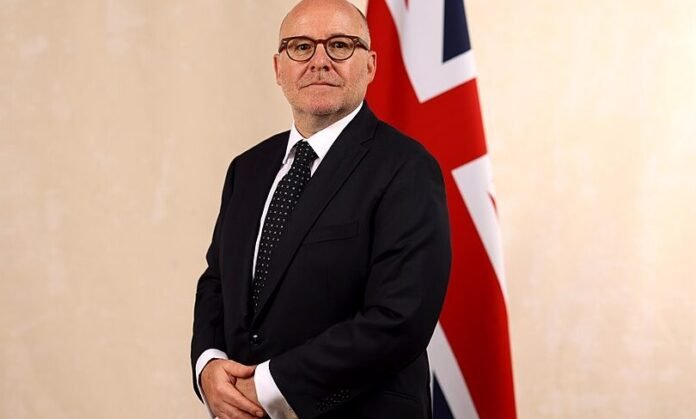Attorney general regrets Nazi-era comparison amid row over UK’s commitment to international law
The attorney general has issued an apology after triggering a political storm by comparing Conservative and Reform UK positions on international law to those of Nazi-era German jurists.
Lord Richard Hermer KC sparked backlash in a speech on Thursday when he criticised those urging Britain to abandon international treaties such as the European Convention on Human Rights (ECHR). He likened their logic to that of Carl Schmitt, a legal theorist whose ideas underpinned the Nazi regime in 1930s Germany.
Though Hermer insisted he was defending legal norms and not attacking individuals personally, the reference drew immediate condemnation.
Kemi Badenoch, the Conservative leader, accused Hermer of “self-loathing” and misrepresenting patriotism. “Our sovereignty is being eroded by out-of-date treaties and courts acting outside their jurisdiction,” she wrote on X. “Pointing this out does not make anyone a Nazi. Labour has embarrassed itself again with this comparison.”
Nigel Farage, leader of Reform UK and a long-time critic of the ECHR, also seized on the remarks, using them to underline his party’s call for a full withdrawal from international conventions that he argues tie the hands of ministers.
Facing mounting criticism, a spokesperson for Hermer on Friday acknowledged the language was “clumsy” and expressed regret. However, they stood by the core argument, saying the speech had been “a robust defence of international law” and its role in national and global security.
“International law underpins our security, protects us from aggressive states like Russia, and helps combat organised immigration crime,” the spokesperson added.
Embed from Getty ImagesThe controversy centres on Hermer’s warning against undermining international norms, which he delivered at the Royal United Services Institute. In his address, he warned that sidelining legal commitments during moments of political expediency echoed dangerous legal theories from Germany in the early 1930s.
“The claim that international law is fine as far as it goes, but can be put aside when conditions change, is a claim that was made in the early 1930s by ‘realist’ jurists in Germany, most notably Carl Schmitt,” Hermer said.
Schmitt argued that state power should override legal constraints—a philosophy that Adolf Hitler embraced after becoming chancellor in 1933. Hermer drew a line from that ideology to calls from within the UK to ignore or withdraw from treaties seen as limiting national decision-making.
In his speech, Hermer stressed that his critique was not a personal attack. “I do not question for a moment the good faith, let alone patriotism, of the pseudo-realists,” he said. “But their arguments, if ever adopted, would provide succour to Putin.”
He added: “Let me be crystal clear: we must not stagnate in our approach to international rules—we must be ready to reform where necessary. But we cannot allow Britain to abandon legal commitments in favour of raw power.”
The row exposes deep political fault lines over the role of international law post-Brexit. Both Reform UK and segments of the Conservative Party argue that international treaties like the ECHR constrain the UK’s ability to enforce immigration policies and protect borders.
Labour, for whom Hermer serves as attorney general, maintains that the legal order built after 1945 is essential for both ethical governance and national resilience.
Despite the apology, Hermer’s comments are likely to remain a flashpoint, particularly with Reform surging in polls and the Conservatives framing international law as a barrier to sovereignty.
